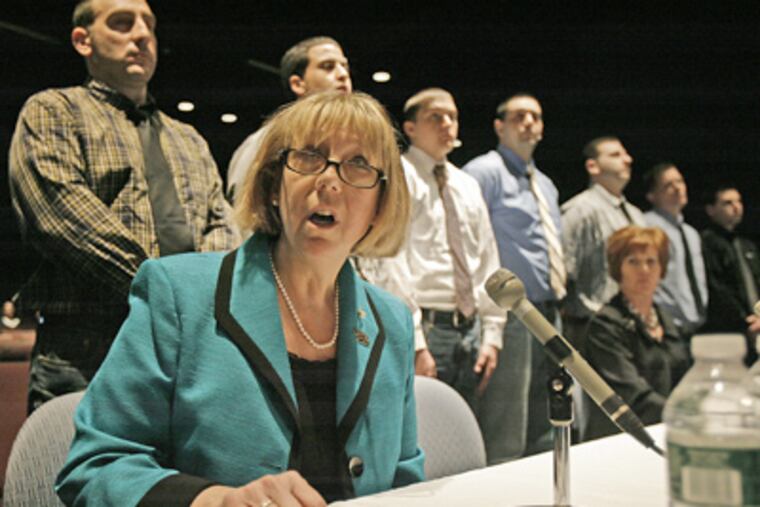New Jersey Senate panel hears pleas to restore funding cuts
The number of Camden students involved in after-school activities and tutoring through New Jersey After 3 fell from 850 to 150 after last year's state budget cuts, and the program would lose all its state funding under Gov. Christie's recently proposed spending plan.

The number of Camden students involved in after-school activities and tutoring through New Jersey After 3 fell from 850 to 150 after last year's state budget cuts, and the program would lose all its state funding under Gov. Christie's recently proposed spending plan.
Mark Valli, the organization's president and chief executive officer, called Tuesday on the Senate Budget and Appropriations Committee to restore funding for the program, which serves 5,000 children in mostly urban districts around the state.
"With all the failing schools we have, and schools that aren't performing, quality after-school programs are a very cost-effective way to expand student learning time and help students do better in school," he said.
The Senate panel came to the Blackwood campus of Camden County College for its second hearing on the $29.4 billion budget unveiled by Christie last month. The Republican governor's proposal requires approval from the Democratic-controlled Legislature by July 1.
Much of the testimony addressed the effects Christie's budget could have on vulnerable populations: children, people with little or no health insurance, and the disabled and elderly.
Christie has said his budget continues a model of setting priorities and funding them at a level the state can afford. The state is increasing funding for hospitals and charity care, and is maintaining funding levels for the Pharmaceutical Assistance to the Aged and Disabled and Senior Gold Prescription Discount programs.
But advocates questioned plans to institute $3 co-pays for adult medical day care, cut $3.7 million in funding for an AIDS drug-distribution program, and save $13 million by ending Medicaid coverage for Part D prescription drug co-pays and wraparound drugs for Medicare beneficiaries.
Some also voiced opposition to a 10 percent proposed cut in reimbursement rates for federally qualified health centers, saying they already were already coping with a wave of new patients.
They said the elimination of $7.5 million for family-planning services - mostly for poor women - and cuts to the FamilyCare health-insurance program for low-income residents in the current budget had driven more people to the centers. The state anticipates those facilities, which serve people with little or no health-care coverage, will have 413,000 primary-care visits by uninsured people in the next fiscal year.
Rudine Smith, who heads the Neighborhood Health Services Corp. in Plainfield, said federally qualified health centers were increasing capacity and reducing barriers to health care as hospital closures, growing immigrant populations, and cuts to other health-care programs directed a significant portion of the state's community health-care needs to the centers.
They cannot absorb a funding cut, said Katherine Davis, president and chief executive officer of the New Jersey Primary Care Association.
Lawrence Ragone, president and chief executive officer of the South Jersey Eye Center, sought the restoration of at least $200,000 in state funding that had been cut for free and low-cost eye care for the needy.
He also said the government reimbursement rates for vision services were so low that his organization had been forced to make up some of the shortfall by seeking corporate donations. Without enough funding, the center will visit thousands fewer patients at schools and senior centers, Ragone told legislators.
Others, including an official at the Chamber of Commerce Southern New Jersey, had praise for Christie's budget, which features nearly $200 million in corporate tax breaks.
Kathleen Davis, the chamber's executive vice president and chief operating officer, told lawmakers that her members supported the tax cuts, along with the pension and health-benefit changes being pushed by the governor.
"I can tell you that business confidence is increasing, and it's due in no small part to the unprecedented attention paid by this governor to the needs of the business community," she said.